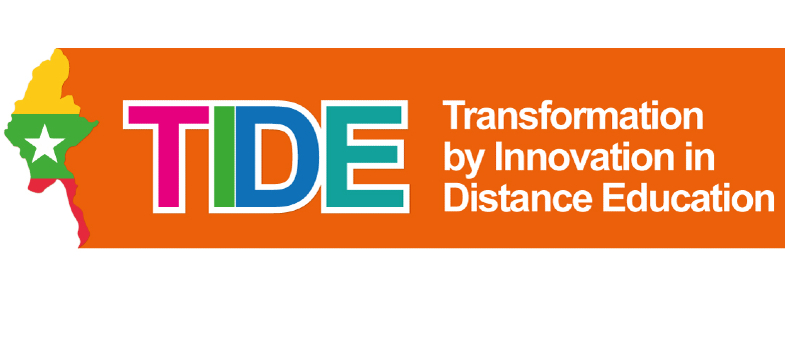This compilation of online learning resources is designed to provide a broad introductory overview on water quality, particularly in the context of South and Southeast Asia. The content aims to focus on three key areas regarding water quality: (1) types
and sources of water pollution, and why they are important; (2) water quality assessment/monitoring and remediation, particularly for water supplies used for drinking; and (3) an overview of selected topical issues regarding water quality (e.g. water
quality and mining, community science approaches, emerging water quality challenges, open access water quality resources and the Sustainable Development Goals context). Examples and relevance within the context of Myanmar and/or South/Southeast
Asia are highlighted when possible.
Learning resources include slide decks, videos (with transcripts and closed captions), suggested learning exercises and links to further resources. All resources are designed on the basis of a self-study, self-paced structure.
Please note that this is not intended to be a comprehensive
course on water quality, and instead is simply a compilation of learning
resources covering selected key aspects of this topic. Due to the early closing
of the TIDE project and associated resource limitations, a comprehensive
integrated water quality course was not feasible to be developed on the reduced
timeline available.
Intended audience
This content is broadly intended for two audiences: (i) interested TIDE participants (e.g. University-level academics) from any TIDE cohort and participating University/Department in Myanmar; and (ii) more widely for University-level academics and/or
advanced undergraduate or postgraduate students particularly based in Myanmar (and elsewhere in South/Southeast Asia), especially those based in a science-based Department.
Prerequisite requirements
None, although participants with a background in chemistry, geology, geography or another type of science background may find this content to be most relevant. The content is designed in a way to be widely accessible and participants from all backgrounds
are welcome.
Summary of Online
Resources
Each mini-lesson includes
a slide deck, video recording (with transcript files and closed captions
provided in English; typically ~ 15 minutes in length), and associated learning
activity and suggested resources (open-access as much as possible) for further
reading.
Resource
Set 1: Water Quality: Importance and Regulatory Settings
- Water Quality: Definitions and Importance
- Water Quality: Water Types
- Water Quality: Standards and Guidelines
Resource
Set 2: Water Quality: Contamination
- What is Contamination?
- Natural/Geogenic Pollutants
- Anthropogenic Pollutants
Resource Set 3: Water Quality Assessment and Analysis
- Monitoring, Assessment and Analysis
Resource
Set 4: Arsenic in Groundwater
- Arsenic: Background & Importance
- Arsenic: Geochemical Controls
- Myanmar Case Study
Resource
Set 5: Remediation Approaches
- Remediation Approaches
- Remediation Selection
- Water Safety Plans
Resource
Set 6: Water Quality & Mining
- Chemical Mining Hazards
- Acid Mine Drainage
- Acid Mine Drainage: Remediation
- Cost-Benefit Example
Resource
Set 7: Community Science Approaches
- Introduction to Community Science
- Case Study: Patna, Bihar, India
A number of other relevant resources are available, including through the Manchester Environmental Research Institute (MERI) “Water” thematic group (https://www.meri.manchester.ac.uk/research/themes/water-resources/
).
Content
Design Team
These learning resources have been designed and produced by a team based in the Department of Earth and Environmental Sciences at The University of Manchester (https://www.ees.manchester.ac.uk/). Our
team includes:

|
Content Coordinator and Lead: Dr. Laura Richards is a Dame Kathleen Ollerenshaw Research Fellow in the Department of Earth and Environmental Sciences
at the University of Manchester, with expertise in groundwater quality and remediation. Her research builds upon her background in chemical/environmental engineering and environmental geochemistry, and is informed by international
field programmes in South/Southeast Asia, South America and Sub-Saharan Africa. She is a Fellow of the Higher Education Academy (FHEA).
|

|
Content Designer: Mr. Sam Addison is an MPhil student in the Department of Earth and Environmental Sciences at The University of Manchester, researching the use of community science within the context groundwater quality in Bihar, India. In Bihar, India Sam has also
been active with the FAR-GANGA project (www.farganga.org), by contributing to field sampling for groundwater quality surveys. Previously Sam completed a BSc in Geography and Geology also
at the University of Manchester, where his studies focused on a range of environmental and geological processes.
|

|
Content Designer: Mr. George Wilson is a PhD researcher in Environmental Geochemistry at The University of Manchester. Working under the supervision of Dr.Laura Richards, Professor David Polya and Professor Daren Gooddy (British Geological Survey), George’s research
focuses on how we can characterise organic matter and how this relates to arsenic mobilisation, which affects millions worldwide and is brought about by the reductive dissolution of iron oxides. George previously undertook a Masters’
degree in Pollution Control, and his undergraduate thesis at Durham University was on developing novel adsorbents for heavy metals found in acid mine drainage.
|

|
Content Input and Review: Prof. David Polya is Professor of Environmental Geochemistry in the University of Manchester’s Department
of Earth and Environmental Sciences. He has over 30 years’ experience of research on the (bio)geochemical behaviour of metals and metalloids in surface and sub-surface systems, and involving field, laboratory and computer modelling
approaches. The research (>100 publications in international journals, including “Nature”), has applications to exploration for mineral deposits, improved petroleum and geothermal reservoir production, geological disposal of radioactive
and other wastes, as well as the prediction and risk assessment of the occurrence of arsenic and other contaminants in well waters, soils and food.
|
Please note these resources are open to the public. You are strongly advised against leaving a rating or reviews if it unsafe for your personal details (e.g. name) to be in the public domain. Please be aware that you cannot delete your reviews after posting, so we urge you not to post unless you are certain it is safe to do so.




